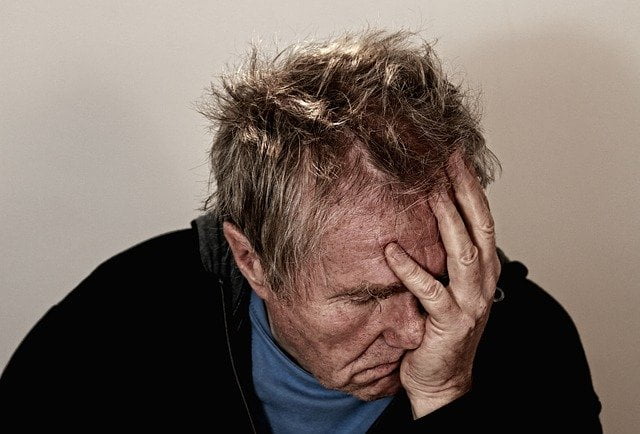- Home
- Types of Addiction
- Alcoholism and Alcohol Dependency
- The Signs And Symptoms Of Alcoholism
The Signs And Symptoms Of Alcoholism
Alcoholism is a complex disorder which impacts you both mentally and physically in a wide variety of ways.
Due to its complexity, there is no single experience of alcoholism that can be applied to every alcoholic.
Everyone addicted to alcohol has unique circumstances and presentations, as well as their own individual reasons for the addiction.
Nevertheless, there are still certain commonalities that can be seen across the spectrum of alcoholism.
This allows professionals to define alcoholism, diagnose it when necessary as well as understand its signs and symptoms, and their causes.
What Is Alcoholism?

Before assessing the indicators of alcoholism and its impact on the body, it is necessary to provide a general definition.
Any definition of alcoholism has to encapsulate a wide range of experiences, but it is generally categorised as an uncontrollable impulse which causes you to consume alcohol.
This often coincides with a dependence on alcohol, and an inability to carry out day-to-day activities without using it as a crutch (though there are some exceptions where people are classed as high functioning alcoholics).
Alcoholism falls under the banner of an alcohol-use disorder, which also includes a wide range of problematic behaviours related to alcohol.
Why Is Alcoholism Dangerous?

Some new studies show that the consumption of any amount of alcohol is linked with lower health outcomes such as an increased risk of different types of cancers.
Other research on the same topic highlights that there may be some possible health benefits associated with the consumption alcohol of small-to-moderate amounts of alcohol.
While there is much disagreement among researchers of the topic, it is widely accepted that the consumption of alcohol, in moderation, does not have a major impact on your health and wellbeing.
However, the vast majority of research on the topic indicates that the consumption of alcohol in high amounts and in high frequency can be extremely damaging.

For this reason, alcoholism -which causes you to drink high amounts at a very high frequency- is recognised as an extremely dangerous health condition.
People living with an addiction to alcohol have a lower life expectancy, due to a higher risk of developing: various cancers, high blood pressure, stroke, digestive issues and liver disease.
Alcoholism also impacts your health more widely as it interferes with your sleeping patterns, impacts your weight, reduces the amount of exercise you conduct and degrades your mental health and wellbeing.
Specifically, an excessive consumption of alcohol is linked with the onset of mental health disorders like depression and anxiety.
It is very important that someone who is at risk of developing an addiction to alcohol -or already has developed an addiction to alcohol- recognises the risks associated with the addiction and the stress that they will inevitably be placed on their physical and psychological health.
The Signs Of Alcoholism

Despite this, many people with an addiction to alcohol don’t recognise the extent or seriousness of their problem.
On the other hand, alcoholics who do recognise their addiction might hide their behaviour from the family and friends around them due to the stigma of alcoholism, as well as not wishing to be judged or have an uncomfortable conversation.
For this reason, it can be hard to spot alcoholism even in a family member or friend, which means that it is important to understand the signs and indicators.
The signs of alcoholism vary widely.
Sometimes you will be able to notice that a person is becoming more withdrawn, or is more prone to reckless decision making and behaviours.

Alternatively, someone might begin to have trouble with their job and their finances, and begin to ask for financial assistance from family or friends.
Physical signs of alcoholism can include a persistent smell of alcohol on the breath, a dryness of skin, and a tired appearance.
If you suspect that someone close to you might have an addiction to alcohol, or might be at risk of developing that addiction, look out for the signs and consider having a conversation about their health and wellbeing.
The Symptoms Of Alcoholism

With the onset of alcoholism, you will begin to experience a growing list of damaging symptoms.
One of the primary symptoms of alcoholism is the inability to limit or control the amount of alcohol that you consume at any given time, due to impulses and cravings.
You might also find that you will need to consume more alcohol to get drunk than you previously did, as your body builds up a tolerance to its effects.
This could lead you to drink at unusual times of the day and in unusual places.

You could find yourself drinking once you wake up in the morning to start your day, before you go to bed to help you sleep, or in the middle of the day as you’re carrying out your responsibilities while you’re at work.
If you try to reduce your drinking, you may discover that you experience physical withdrawal symptoms in addition to increasingly strong urges.
This can lead your attempts to become unsuccessful, despite initial motivation to cut down.
This shows that you are no longer able to control your own behaviour in the face of an addiction to alcohol.
You could also discover that your decision-making processes are breaking down, leading you to undertake risky, erratic and unsafe behaviours like drink driving or quitting your job.

Indirect symptoms of alcoholism may include social isolation and withdrawal, as you prioritise your drinking and aim to satisfy your cravings instead of your commitments to friends, family, and work.
This can lead to significant personal and social problems, where you become increasingly separated from your social circle and support group.
Along with feelings of guilt, this can lead to depressive spirals which can cause you to drink more – beginning a negative feedback loop which is difficult to step out of.
Why Rehabilitation And Therapy Are Essential

It isn’t an exaggeration to say that alcoholism destroys lives.
Physically and socially, it can have a serious negative impact on your day-to-day experience as you become increasingly unhealthy and unhappy.
To protect yourself and those around you, it is important to understand exactly how serious alcoholism is and to seek a way out.
To begin your journey out of addiction and into recovery, you may need to rely on social support.
This support can motivate and guide you to seek out rehabilitation services or therapy.

A very small minority of people are able to battle their addiction without professional support, but the withdrawal symptoms of alcohol can be life-threatening and it is recommended that you seek professional medical support to help you navigate this, and keep you on the right track.
After the detox period, therapy can help to ensure that you don’t fall into alcoholism again.
Often there are underlying reasons for the development of an addiction, and alcoholism is no different.
By understanding those causes, you can work to avoid triggers in your life which might instigate a relapse.
Get Help Today

In the long term, overturning your alcohol addiction will be life-changing and will give you a new appreciation for yourself and everything around you.
If you are struggling with alcoholism, or believe you or someone you know might be, seek out support today.
With the right help behind you, no addiction is too big to beat.


